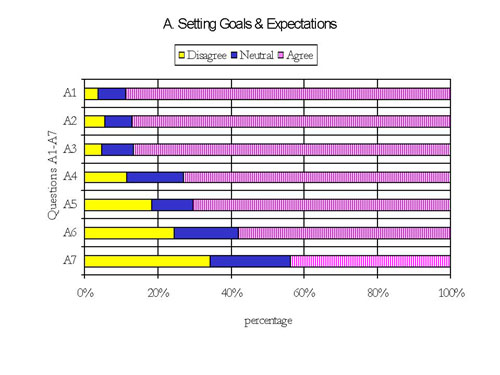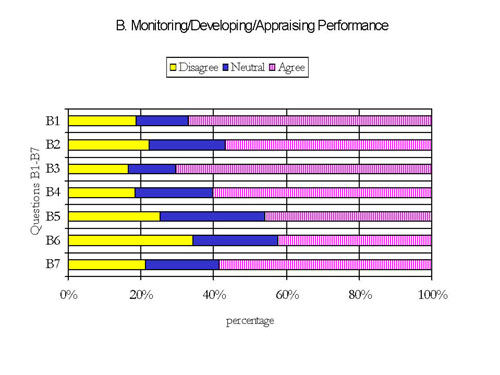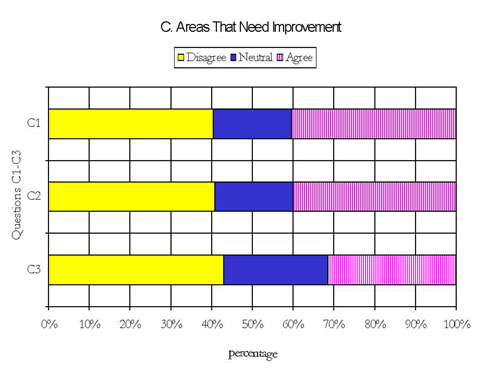U.S. Office of Personnel Management - Ensuring the Federal Government has an effective civilian workforce
Performance Management
Archive
OPM Survey Shows Agencies Successfully Practice Performance Management
Despite the negative opinions often expressed about performance management, OPM survey results show that the performance management practices of Federal agencies are, for the most part, perceived positively.
OPM's Merit System Principles Questionnaire (MSPQ). OPM annually administers the MSPQ to a random sample of Federal employees to determine if agencies are adhering to the Merit System Principles established in section 2301 of title 5, United States Code.
Many of the MSPQ questions address specific performance management principles and practices, such as set-ting goals and expectations; monitoring, developing and appraising performance; and recognizing good performance while addressing poor performance. The survey spotlights performance management practices that are working well and those that need improvement.
Successful Performance Management Practices. The overall results for performance management practices were favorable. For the purpose of this article, we have divided performance-related questions into three categories:
- setting goals and expectations;
- monitoring, developing, and appraising performance; and
- areas of performance management that need improvement.
A. Setting goals and expectations. Responses to the survey indicated that employees have very positive feelings about:
- where they fit in the organization,
- how they contribute to the goal-setting process,
- their communication with their supervisors, and
- their performance appraisal.
Chart A shows the responses to the questions about set-ting goals and expectations, which included:
- I know how my job contributes to the mission and goals of the agency/department.
- I know what is expected of me on the job.
- I am held accountable for achieving results.
- I receive sufficient supervision to get my job done.
- My supervisor/team leader communicates what is expected of me on the job.
- I feel encouraged to come up with new and better ways of doing things.
- In my work unit, we set goals and objectives to help us meet our long-range plans.
Monitoring, Developing, and Appraising Performance. On the questions dealing specifically with monitoring, developing, and appraising individual and work unit performance, the results show employees think these processes are working well in their agencies.
Chart B shows the responses to the following survey questions:
- My performance appraisal is a fair reflection of my performance.
- My supervisor/team leader provides constructive suggestions to improve my performance.
- People in my work unit cooperate to get the work done.
- Information is collected to assess my work unit's performance
- Information collected to assess my work unit's performance is used to improve my work unit's performance.
- We use measures in my work unit to track our goals and objectives.
- I receive the training I need to perform my job.
C. Areas That Need Improvement Not all performance management areas were rated highly by employees. Employees did not feel that awards were always based on merit, that employees were always included in their unit's planning process, or that their supervisors dealt with poor performers.
Chart C shows the responses to the following questions:
- Awards in my work unit depend on how well employees perform their jobs.
- In my work unit, employees participate in developing long range plans to guide our work.
- In my work unit, steps are taken to deal with a poor performer who cannot or will not improve.
Overall, the survey results show that employees are satisfied with their jobs, know what is expected of them, and receive the training and information they need to per-form successfully.
Originally published on Summer 2001.


